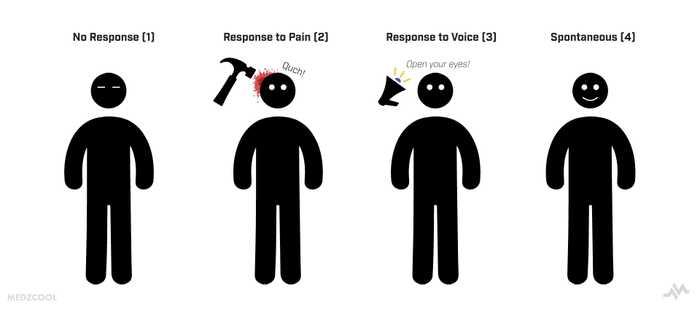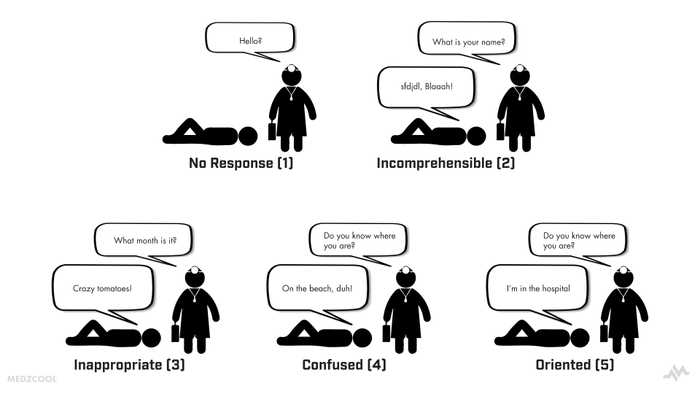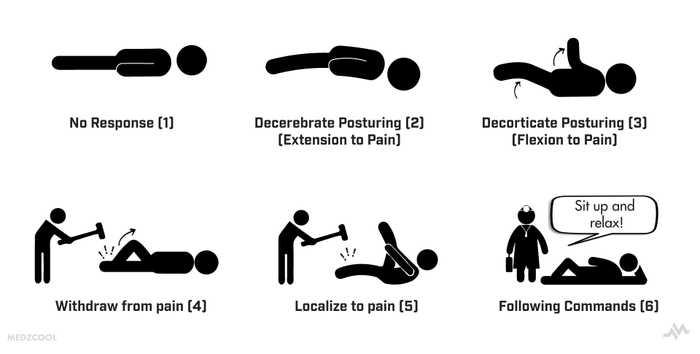NUCLEOTYPE
Glasgow Coma Scale (Score)
January 08, 2020
The Glasgow Coma Score/Scale is a neurological scale used to assess and trend a patient’s level of consciousness. It takes into account the patient’s best response in three components:
- Eye response
- Verbal response
- Motor response.
The score ranges from 3 to 15. Even if a person unresponsive, you can never get a score of 0 because the minimal score in each category is a 1.
Scale Vs Score
The Glasgow Coma Scale differs from the Glasgow Coma Score in that the score is the total score added from all their components (only applicable when all three components are testable), whereas the scale is a record of each of the components documented separately, (applicable if any of three components is not testable).
Score - A sum of all components
Scale - An independent record of each component
You can remember the components of the Glasgow Coma Scale by remembering the letters “E-V-M”. Remembering the letters in this order, also helps you remember that the assigned points to each category is 4, 5 and 6 respectively.
Eye Response
The eye response is one of the first things I usually make note of and it’s the easiest of the 3 components of the GCS to remember.
If a patient comes into your trauma bay looking around, then you will assign them all 4 points. If their eyes closed, try calling their name first. If they respond assign them 3 points. If they don’t respond to voice, apply firm pressure to a finger or toe to assess response to pain or pressure. If they open their eyes to pain, assign them 2 points.
Verbal Response
An easy way to remember the allocation of points in a patient’s verbal response, is remembering from least to most points, the patient will: not speak (1) -> mumble (2) -> say words (3) -> speak in sentences (4) -> speak in paragraphs (5).
Motor Response
The motor response is the most difficult to remember. Here are some tricks to help you out.
Decerebrate vs Decorticate
Think of decorticate as the patient moving their arms and legs towards their core. You can also remember that you get more points for decorticate posturing because it is a higher “CORtical” response.
Withdraw vs Localizing
Think about applying firm pressure to a patient’s toes or finger. The patient who sits up and swats you away (localizing) is likely more awake and aware than the patient is simply moves their leg (withdraws) from pain or pressure. So you would assign more points to the patient who localizes to pain.


